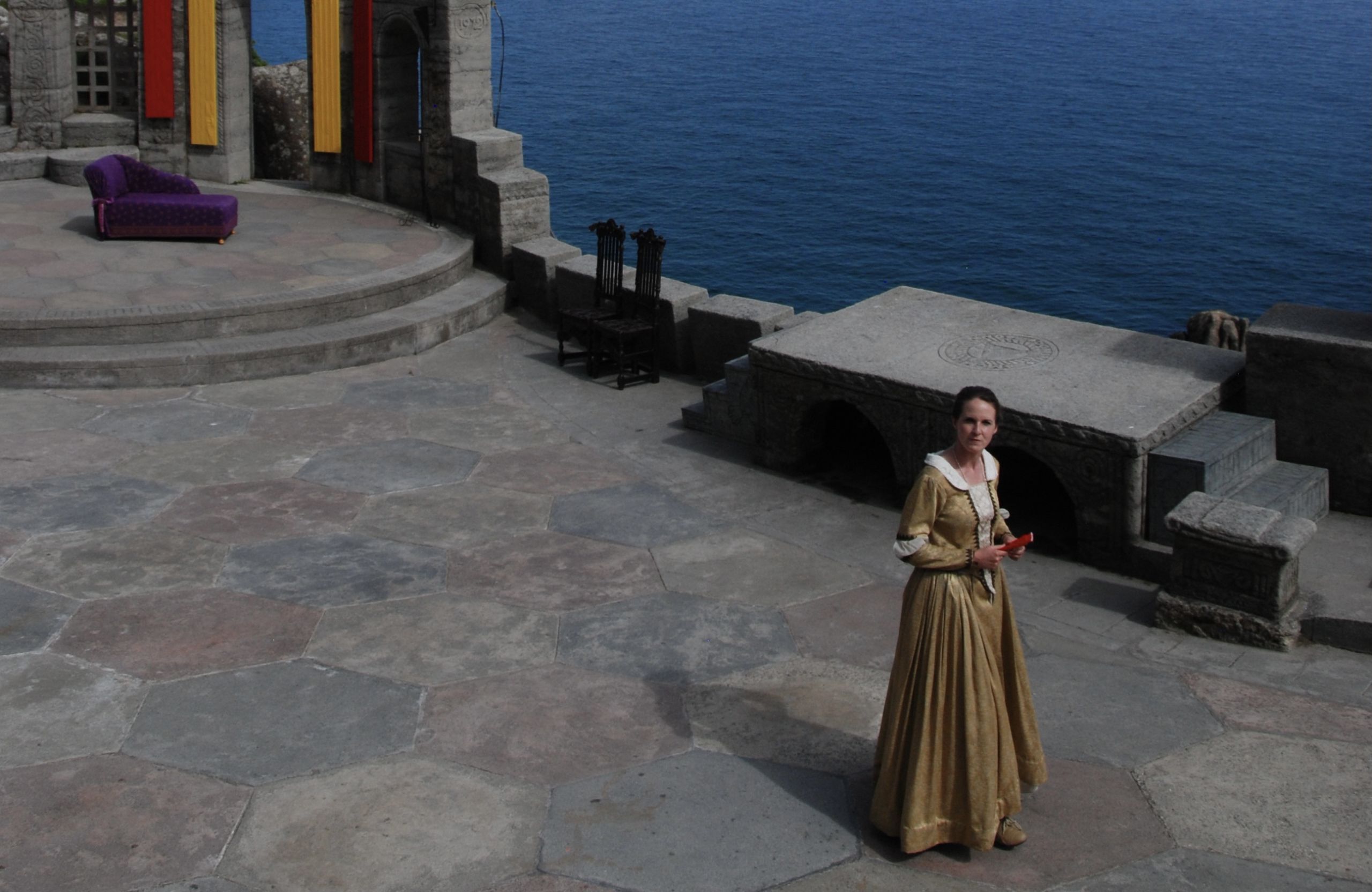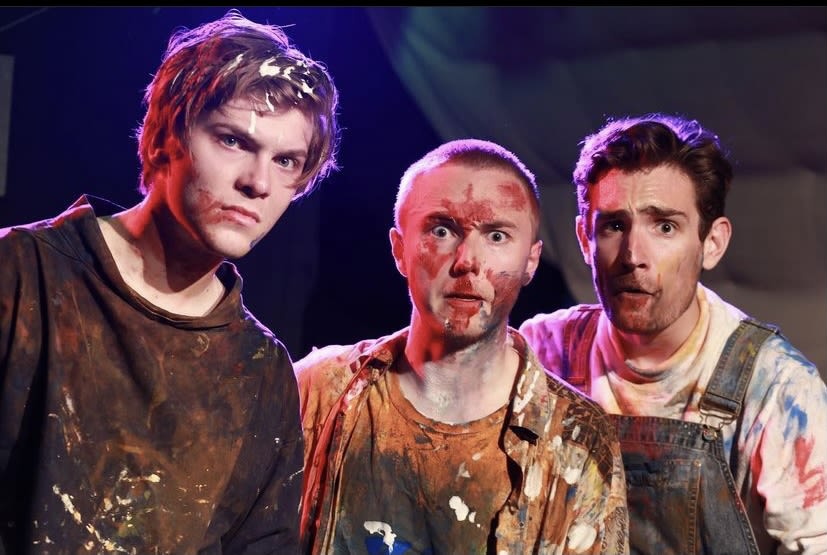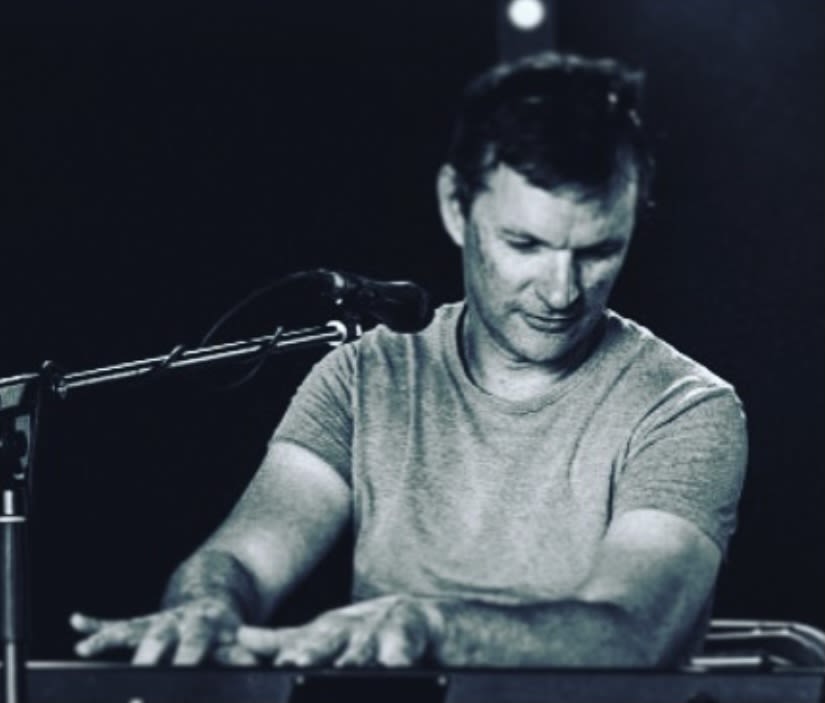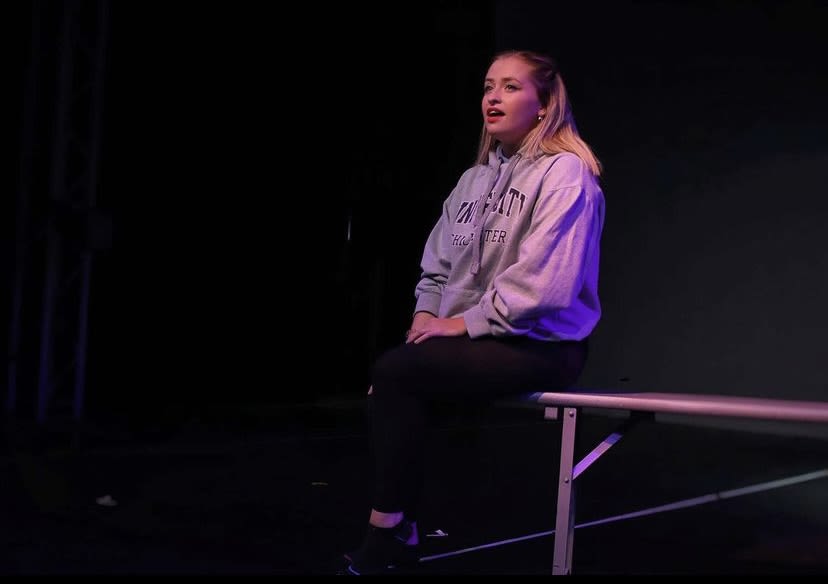Covid-19: The Untold Stories of the Impact on the Theatre Industry
Eleanor Baxter

In March 2020, theatres across the UK had to close as the coronavirus bought the nation to its knees. Curtains had to drop, the final smudge of stage make-up was wiped off for the last time, and point shoes were put into the cupboard to collect dust. But it wasn’t just the glittering theatres of London’s West End that were affected, smaller theatres were thrown into what was going to be a long period of uncertainty.
And it's not just the venues that hold the shows. What was to become of the student who battled her way through auditions to get into drama school? The singing teacher who dedicates his time to coaching rising stars? Or the graduate performer who had just succeeded in getting his first acting job, only to have it snatched away?
These are the un-told stories of the impacts of Covid-19 on the theatre industry, from the people and places that aren’t always given the spotlight.
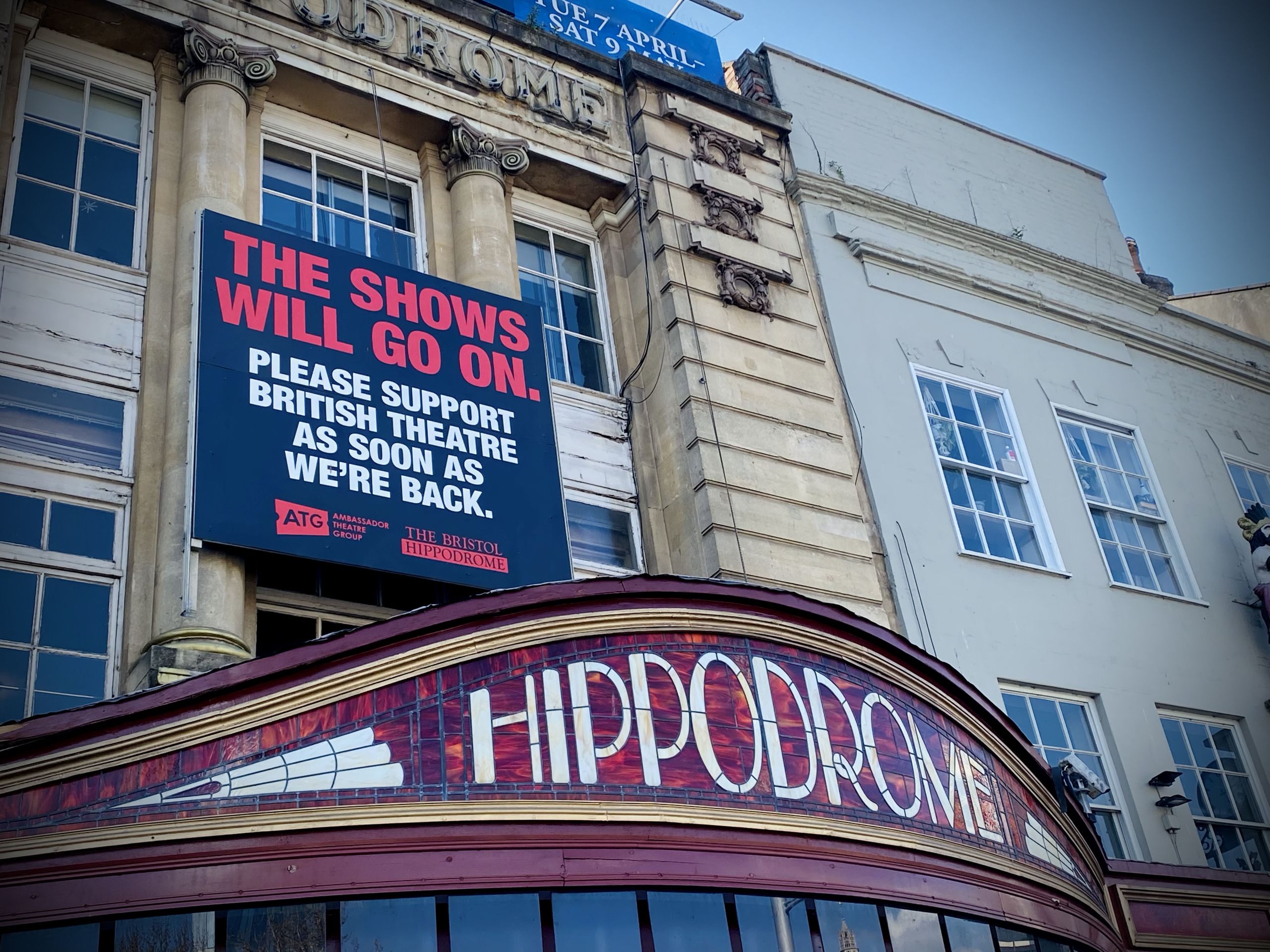
The industry was severely impacted by the spread of the virus. Ticket sales at UK theatres fell by 93 percent in 2020. During the period from February to March 2020 as the virus began to spread throughout Europe, ticket sales decreased by 14 percent year-on-year, resulting in a drop in revenue of 19 percent. Theatres across the UK closed from March 16 2020 following the government's advice for people to avoid gathering in public buildings. Now, in June 2021, the industry is beginning to recover, and as venues begin to open again, ticket sales should hopefully rise once more.
Statistics provided by Statista Research Department:
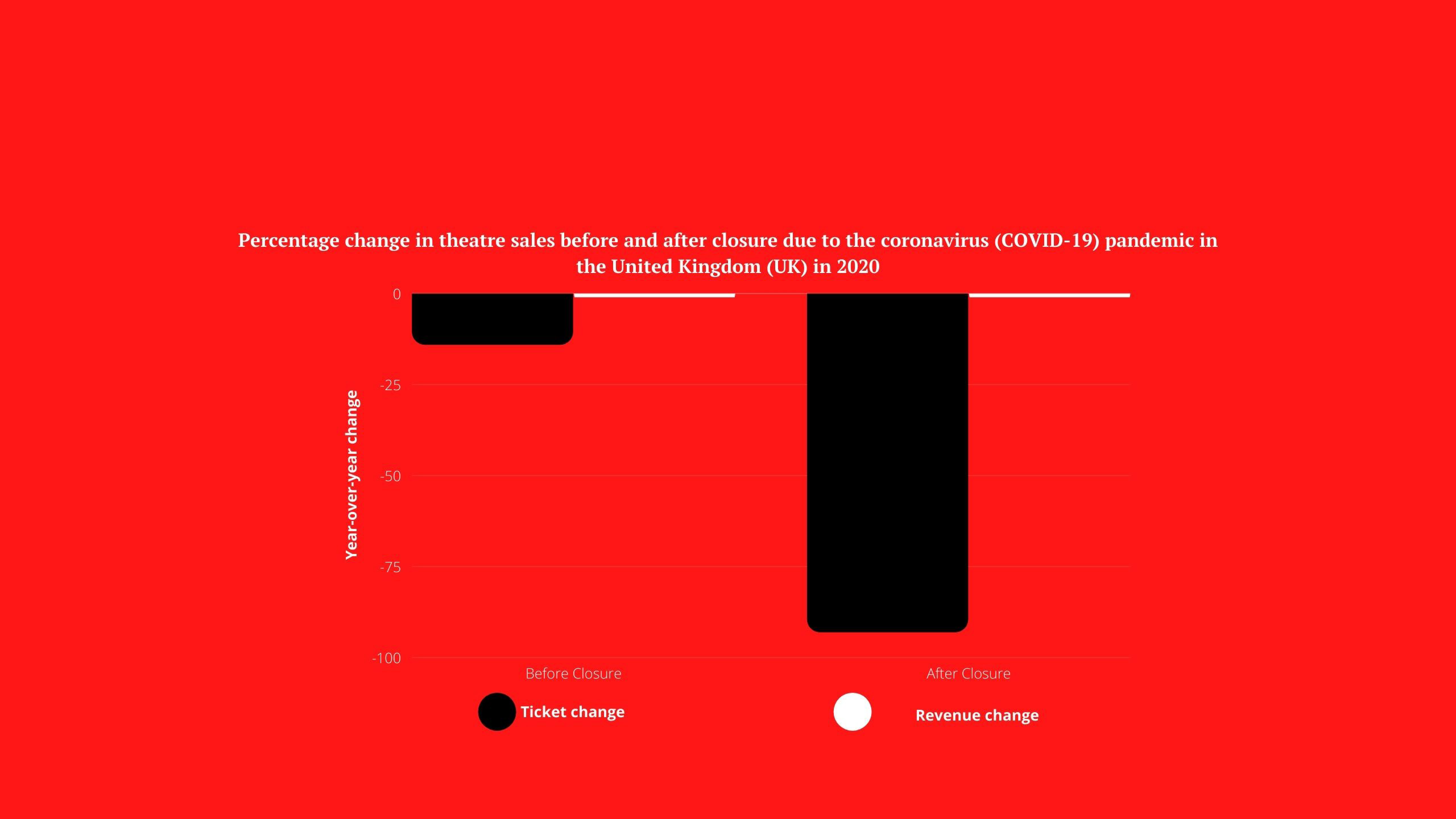
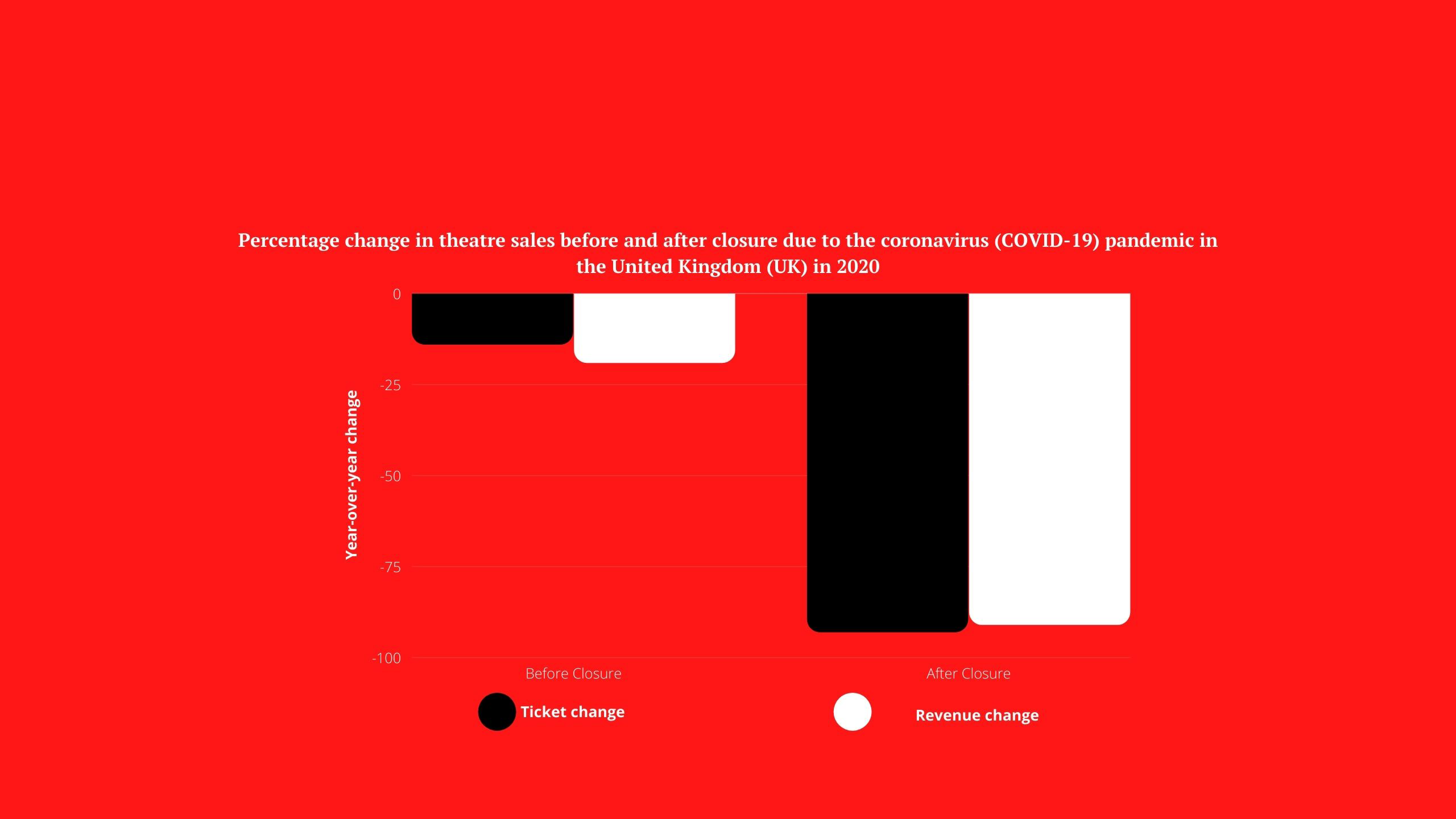
The Minack Theatre
Empty Seats and a Silent Stage

Perched on the rugged Cornish cliffs, looking out onto the azure waters of the Atlantic Ocean, the Minack Theatre is a far cry from The London Palladium. It was carved into the rock by a woman named Rowena Cade, who moved to Cornwall in the early 1920’s and bought the headland for £100. She created concrete mixed with sand from Porthcurno beach, which she carried herself up the steep cliff in sacks.
She, alongside her helpers, built the theatre, a feat that took Rowena the rest of her life. Her artistic flair does not go unnoticed in the intricate designs and carvings in the seats and columns. It attracts up to 80,000 people a year to see a show, and more than 100,000 pay an entrance fee simply to feast their eyes on the magnificent view.
And then everything changed in 2020. The theatre attempted to re-open after the first lockdown, but crowd numbers had to be cut down massively, resulting in losses for the theatre. Then came the second and third lockdown, plunging the Minack once again into closure. Not only were the finances impacted, but the morale and spirit of this beautiful place was knocked. But after months of hardship, the theatre is allowing visits once again and shows will be resuming in May.
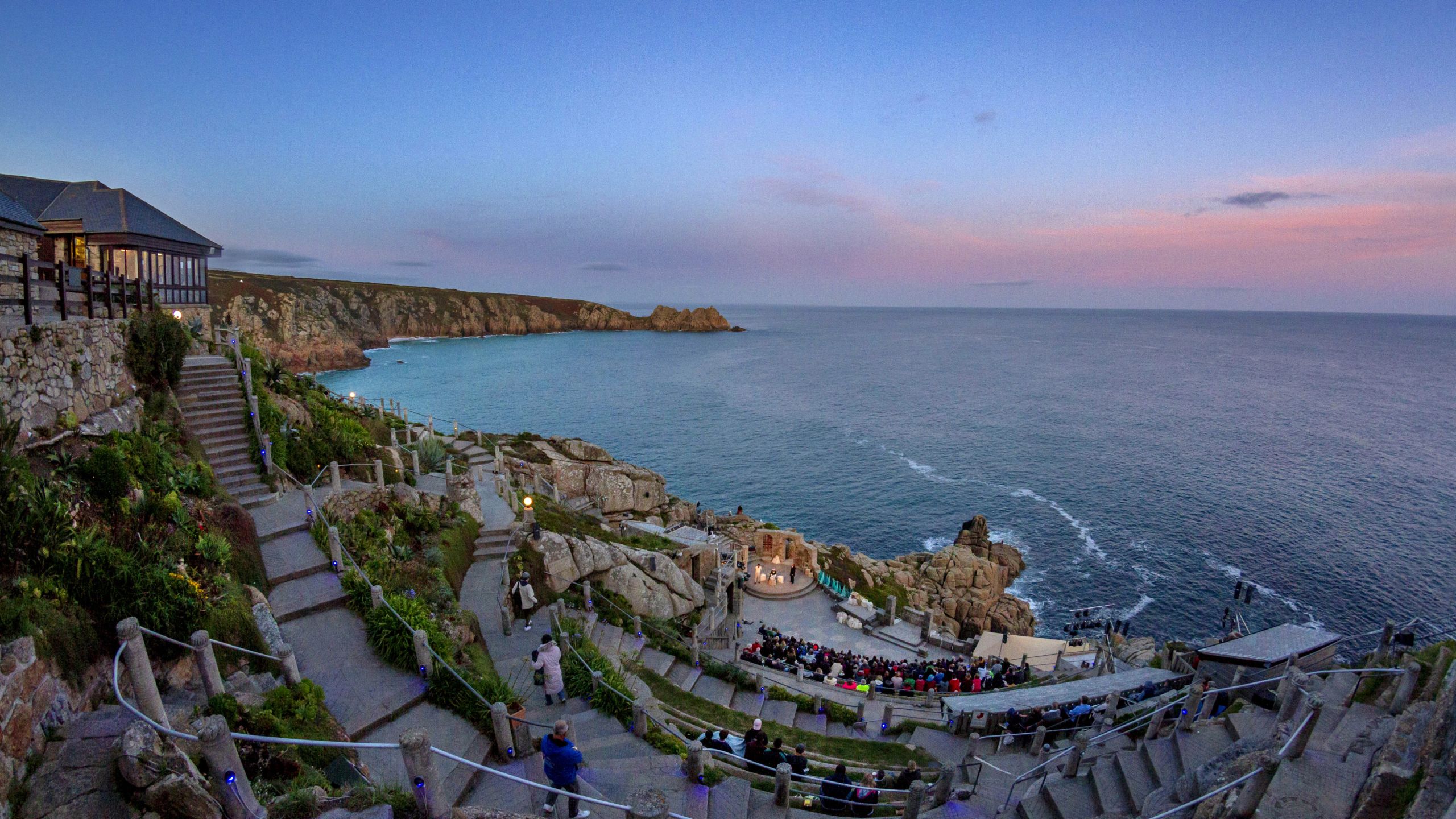
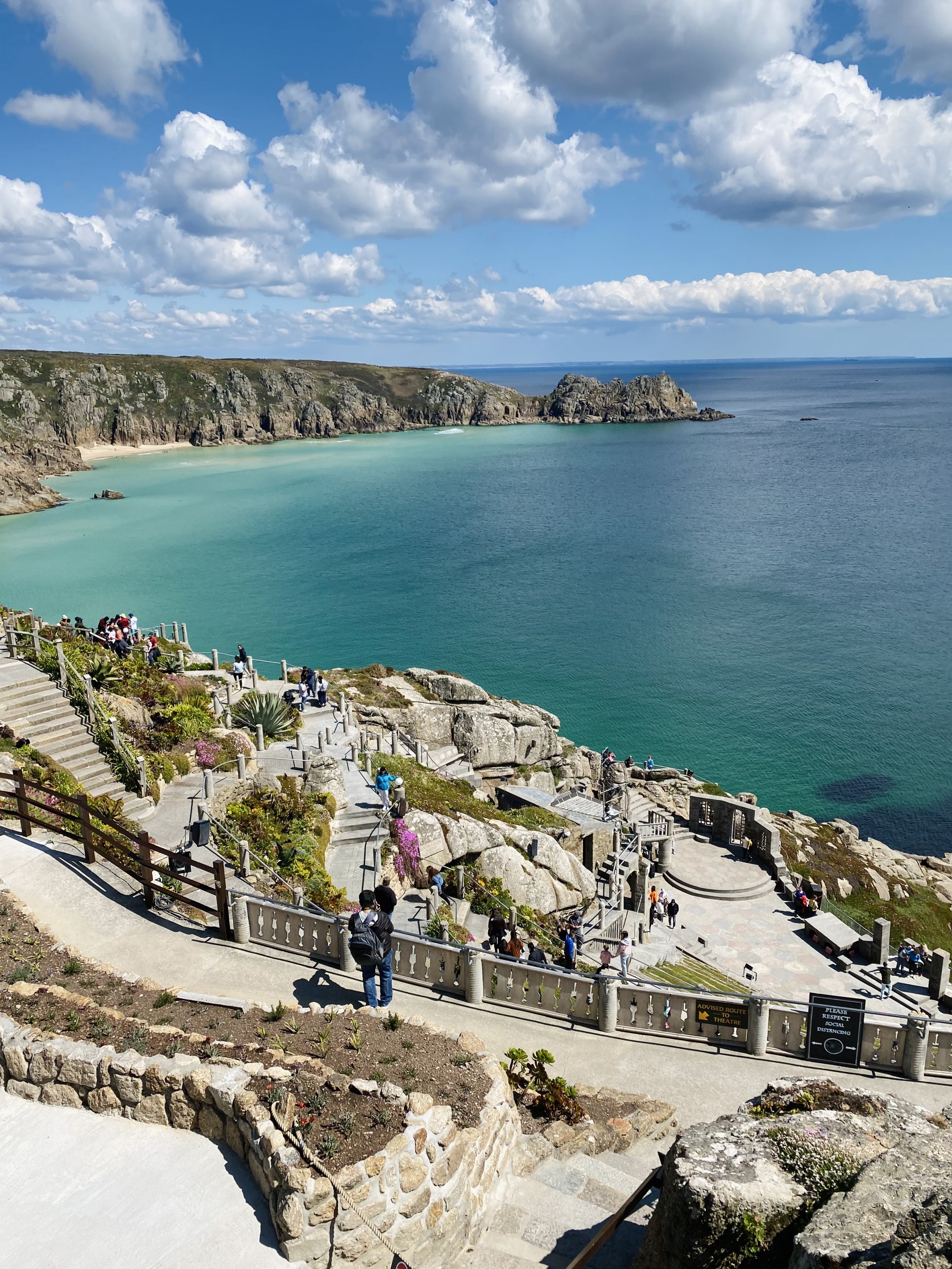
Alex Sowerby is the deputy manager of the Minack. He jogs from the local village to meet me and arrives breathless and enthusiastic, guiding me down the weaving steps and gesturing happily at the flock of visiting families who are dotted around at a safe distance. Seeing the theatre bustling with people again is an unfamiliar sight for Alex, as he became so accustomed to seeing it empty when he visited during the pandemic.“It was wonderful to see it so calm, without anybody in in,” Alex says as we sit on an inlet sheltered from the wind, “but there was a definite sadness when there was no buzz, especially when the shows couldn’t be put on”.
The theatre has set up marked pathways and one-way routes so social distancing can remain in place, and there is hand sanitiser bottles dotted around for visiters to use. “It’s massively positive having people around” Alex says with a smile. The relief is evident on his face as he watches the families laughing and taking selfies around the theatre. Soon the stone seats will be filled with an applauding audience again, and the tourists posing on the stage will be replaced with actors. Actors who have waited in anticipation to return to fill the cliff face and cove with music and laughter once more.
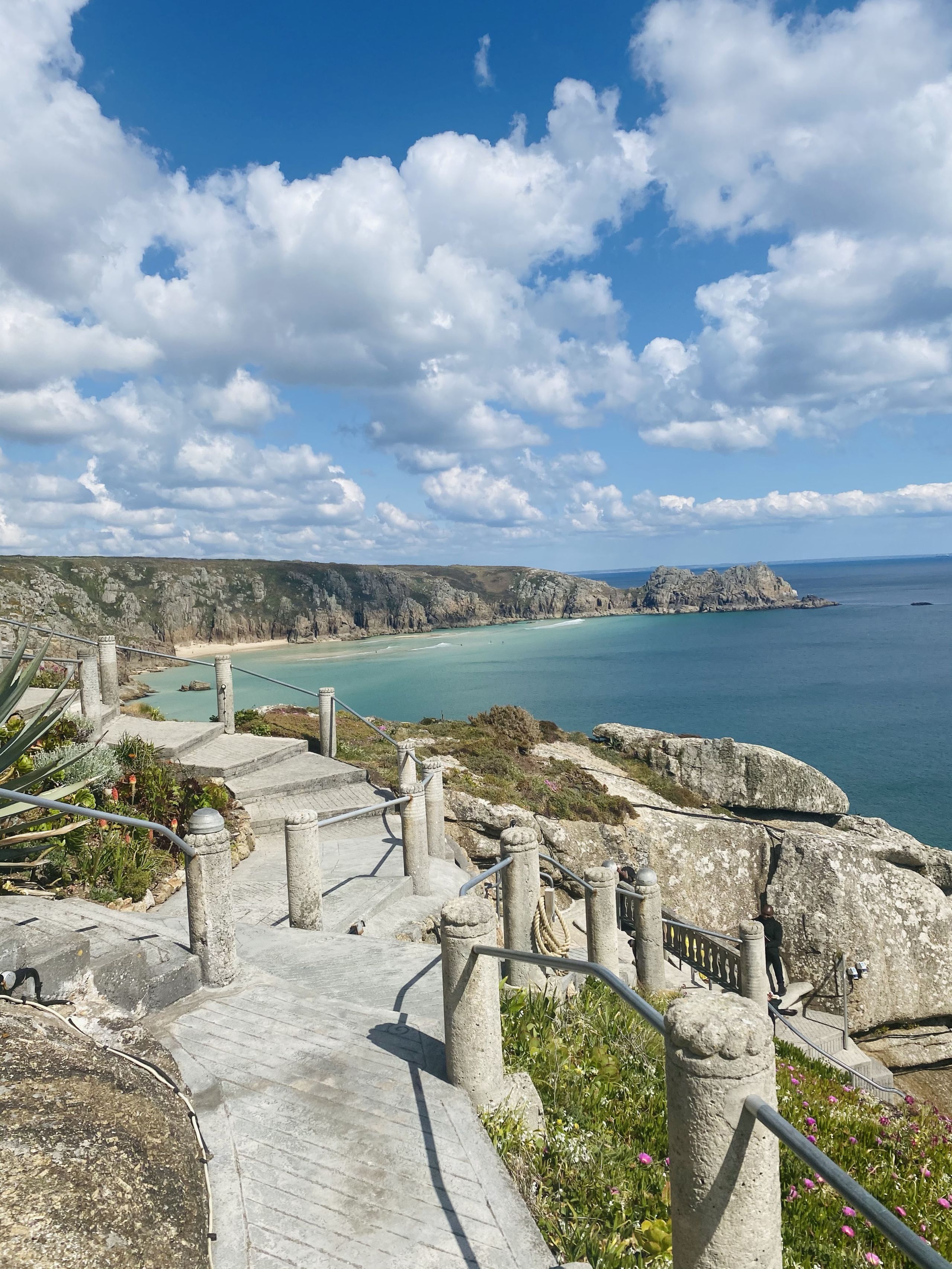
Jacob Aldcroft
The Graduate Performer
Jobs Down the Drain and People to Entertain

In 2019, Jacob Aldcroft graduated from Bath Spa University with a Drama degree under his belt, and his sights set on many exciting job prospects. And then the March lockdown struck, and himself and other graduates across the UK had their new careers thwarted and taken away before they could receive a ‘congratulations’ card. And just as things began to look up in the summer, the second and third lockdowns once again put a halt to graduates succeeding in finding work. “The third lockdown that happened in January and onwards, was by far the hardest. It felt like the longest because it was dark and cold, and being stuck inside isn’t something that I’m used to”, Jacob says, “It was difficult and you felt confined and trapped”.
Previously in September 2020 before the doom and gloom of the third lockdown, Jacob had been working with Wassail Theatre Company, an emergency theatre project based in Somerset. This enabled him to be involved in hyper-local, community led theatre. After the restrictions, and his mood, began to be lifted in April 2021 he was inspired to do some of his own community work in the city of Bristol. And his doorstep, Covid-19 friendly show, “Paint the Town!” was born.
‘Paint the Town!” follows the story of Piotr Voncrieff, an eccentric painter who Jacob embodies, who is on the search for the 'Greatest Artist of All Time'. Jacob travels around Bristol to people who have booked the show, where he then performs for free at a safe distance in their gardens or on their doorstep. He earns his living by being funded by the local arts council, and this allowance allows him to buy his props and travel to Bristol’s various neighbourhoods.
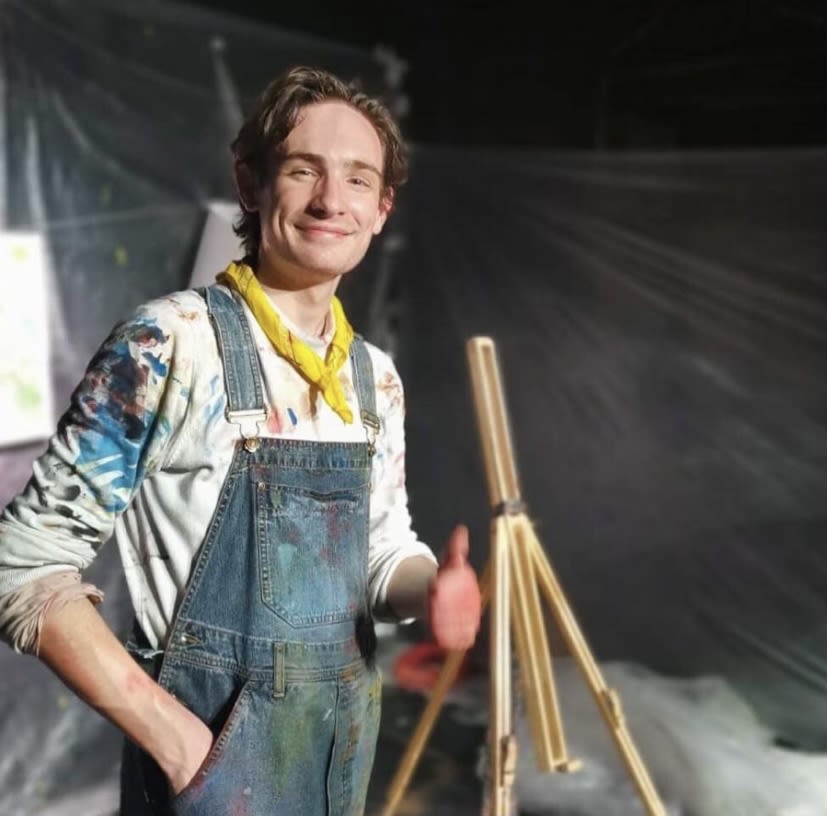
I go with Jacob one Sunday to see him in action. Watching the delighted families absorbed in the show and laughing and clapping with joy, highlights the importance of theatre, and the happiness and entertainment it provides in such strange times. We whizz around Bristol between show slots in his little blue Peugeot, the boot stuffed with easels and canvases.
“The response from people has been great” Jacob says as we park outside a house 10 minutes before his next performance, “part of my proposal was that people haven’t seen things that are unexpected or out of the ordinary like you do at the theatre, and the other half of the proposal was if people can’t go to the theatre, then theatre should come to them”. It is evident from the reaction of these Bristolians, that despite months of having access to streaming sites and social media, people have really missed watching live theatre.
There is no denying Jacob’s talent, and as the new normal approaches, he has hopes for job opportunities. But for the meantime, he is thoroughly enjoying the work he is doing and has faith in the theatre industry bouncing back. He expresses how actors have had to adapt to new ways of performing to make a living. “I hope things like doorstep theatre can continue to happen, and I hope arts organisations help emerging creatives like myself to get their work out in front of people in new ways like this”.
Background Image Credits: Jacob Aldcroft
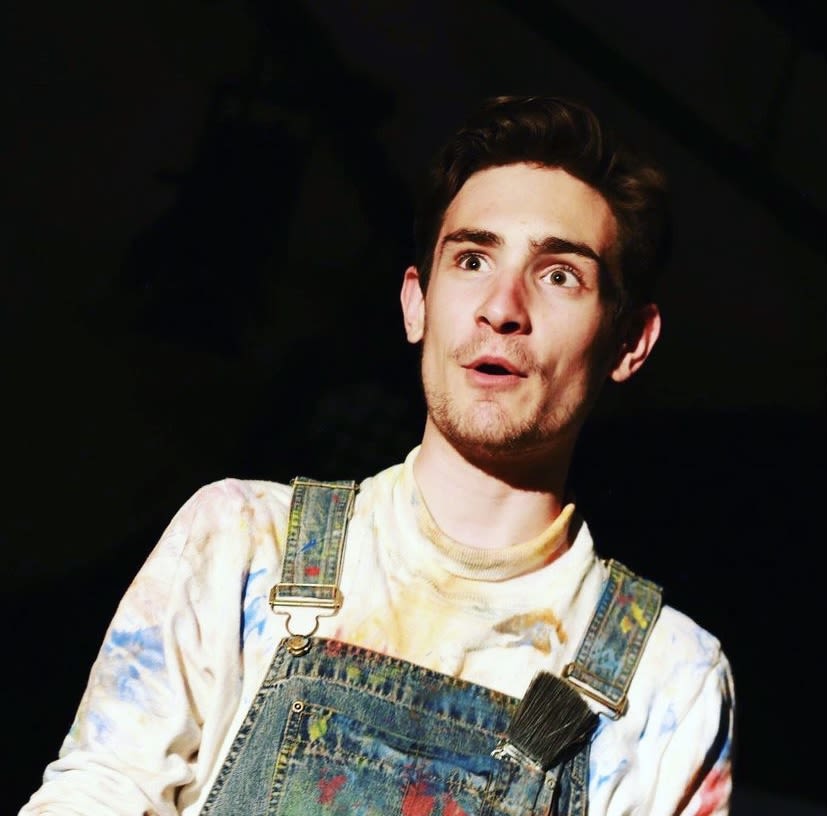
Maddie Wood
The Drama Student
Zoom Ballet Lectures and an Uncertain Future
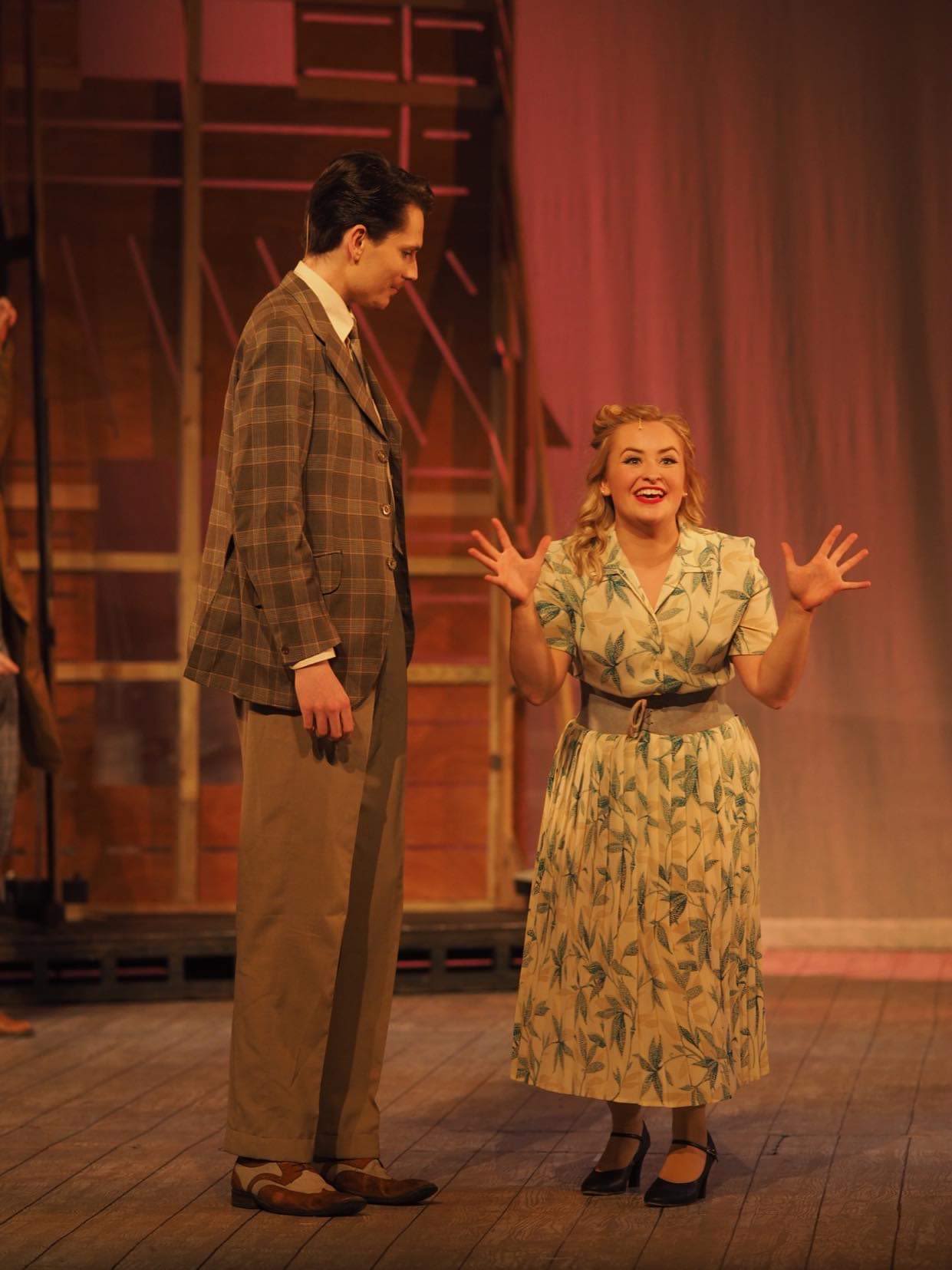
Maddie Wood knew as soon as soon as she went to watch Wicked on the West End when she was eleven, that she was born to be on stage, and strived to be the next Elpheba. The 20-year-old from St Austell, Cornwall studied musical theatre at college, meanwhile attending countless singing, dancing and acting lessons to prepare for the relentless auditions for drama school.
These schools, like Guildford School of Acting and Mountview, are the dream of many young people across the UK, but not just anyone with a few tap dancing moves under their belt can get in. “The industry is insanely competitive, you have to be the best of the best basically, throughout your whole career you have to be top of your game”, Maddie tells me over a Zoom call. She has rushed to find a spare classroom after a lecture, and her hair and make-up is done beautifully, as if she’s just stepped off the set of Chicago.
The students at these schools live and breathe musical theatre, and have made the effort and fight to be there, as there are extremely limited spaces at these conservatoires. Every year over 10,000 people will audition for British drama schools. Of that 10,000 only a few thousand will make it through to the second round, and only several 100 will secure places at the third round. After the disappointment of rejections from her dream schools, Maddie secured a place through clearing at Chichester Conservatoire on the Musical Theatre- Triple Threat course.

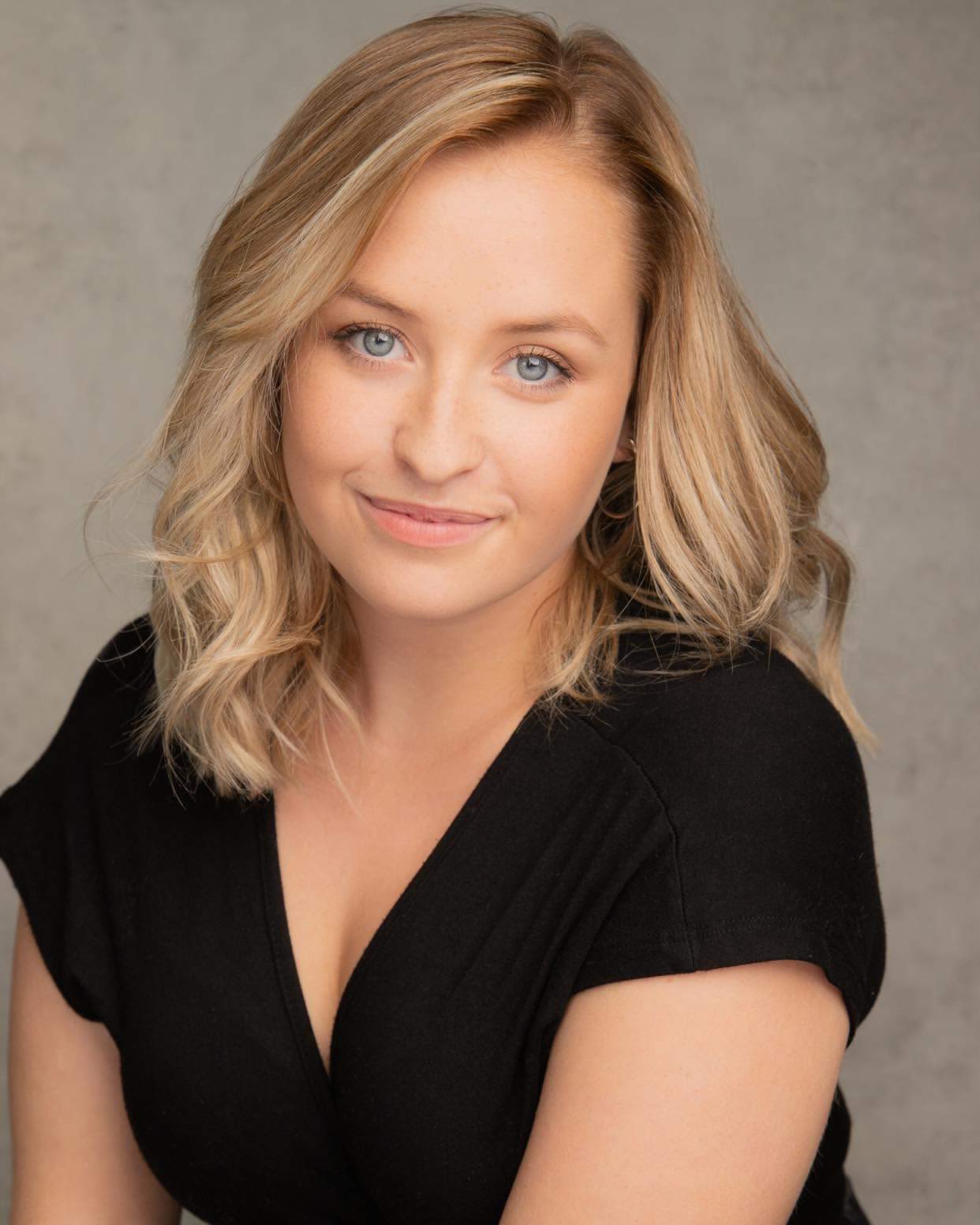
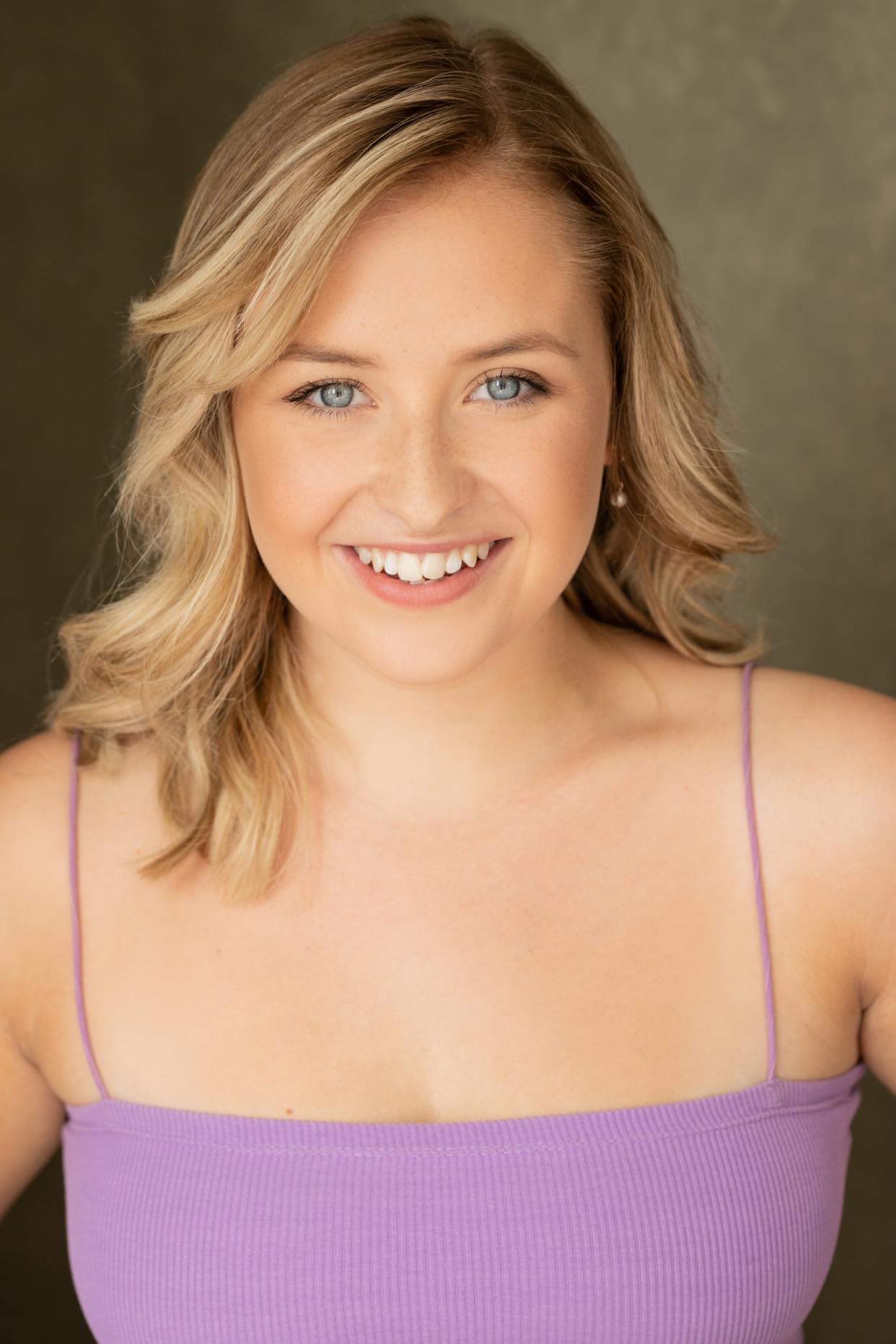
And then Maddie’s glamorous world of drama school was flipped upside down, and she was sent back to Cornwall in March to watch Boris announce the lockdown in her living room. This period was a trialling time for students across the UK, and Maddie began to have serious doubts about her future in what seemed to be, a collapsing industry. “I was sitting at home watching videos of people online, because I had endless amounts of time to do that, and comparing myself to other people, I sat there for a few months and I thought, is this truly what I want to do”, Maddie says. She tells me how she began brainstorming backup options, as she was terrified she’d have to pack it all up and discover a new passion.
The UK government's ‘Rethink. Reskill. Reboot’ campaign ignited anger in those who had dedicated their lives to the theatre industry. It also instilled panic, and people did start to find alternative career paths. “In January this year, I had a really low point and I was almost tempted not to go back and finish the course” Maddie says. It was scary times indeed.
But Maddie did return. After months of Zoom dance lessons and aching to be back amongst the bright lights, she is back doing what she loves. But changes have had to be made for the new restrictions. In lessons, masks or visors have to be worn, and class numbers and lesson times have been reduced. Social distancing rules apply to lessons and shows, and whilst performing, touching and kissing is off the cards, but Maddie is just grateful to have the opportunity to perform again.
And the negativity she encountered in the lockdowns is beginning to ebb away, as she is now wrapped up in cast announcements and meeting hopeful agents looking to scout for upcoming actors and actresses. Coming back to university has motivated her to remain dedicated to doing what she loves most. “It’s reinvigorated that passion within me and I have more of a drive than I ever have” Maddie says with a beaming, red lipstick, show stopper, smile.
Background Image Credits: Maddie Wood
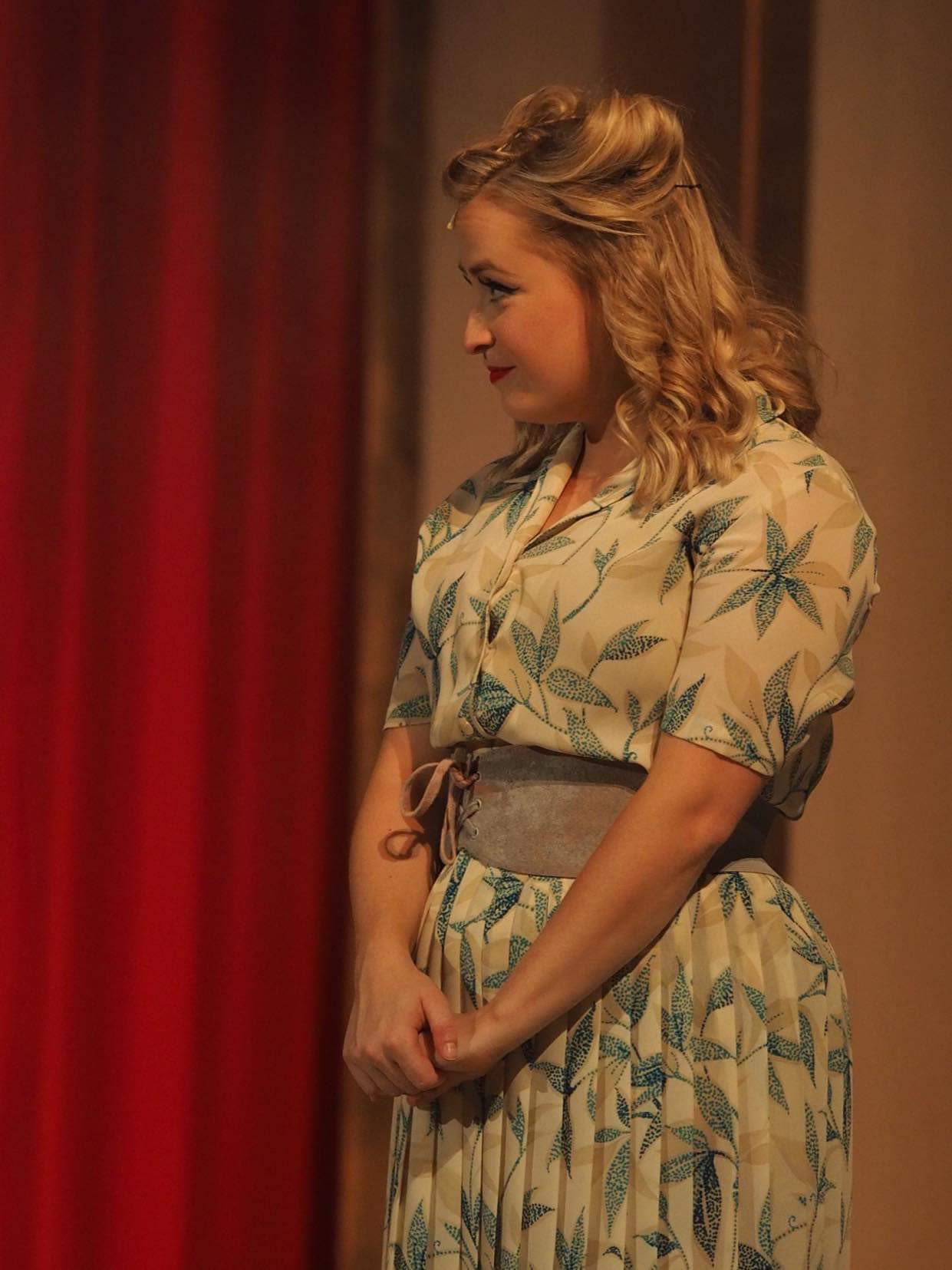
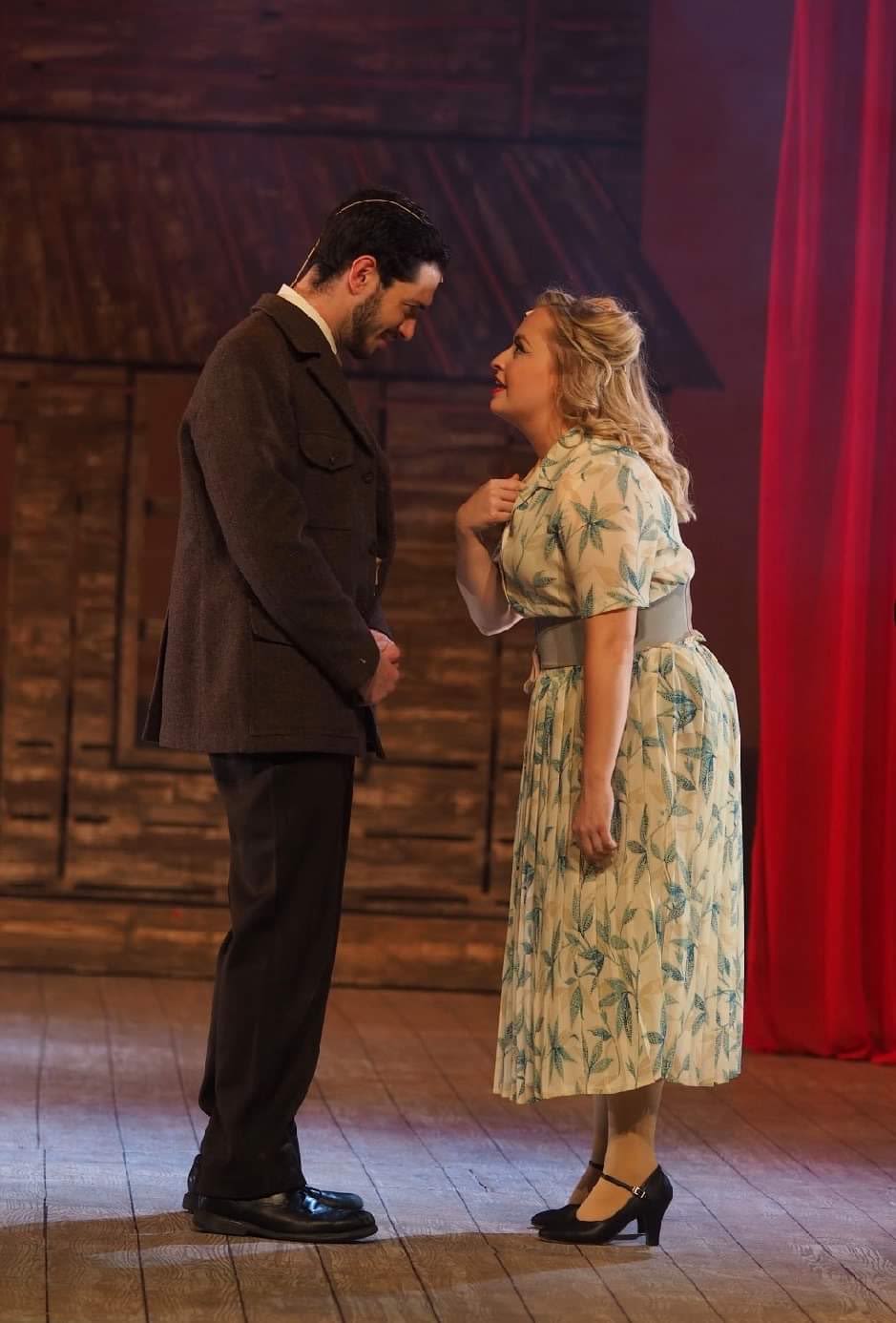
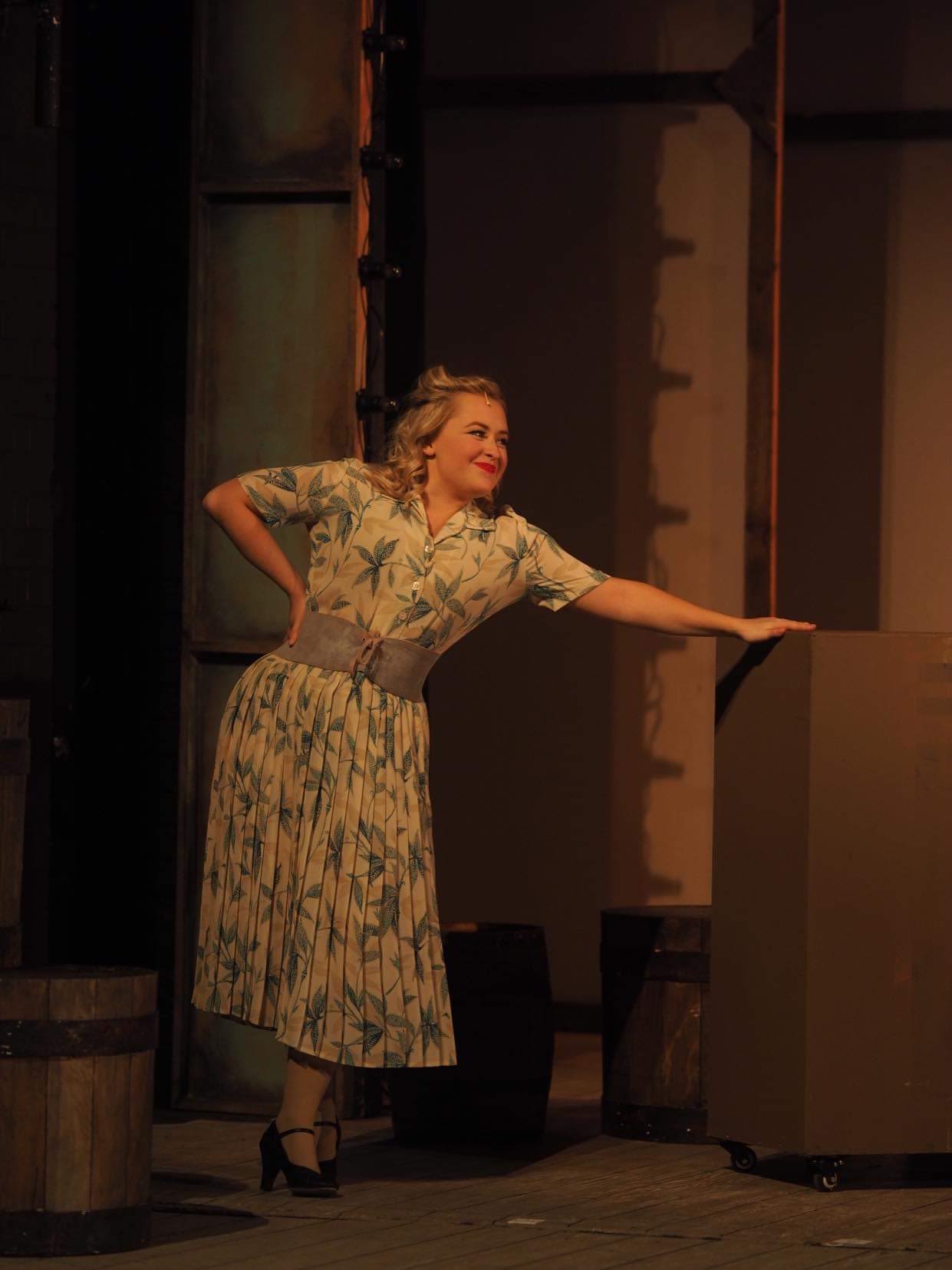
Scott Fleming
The Singing Teacher
Virtual Do-Re-Mis and Stressed Students
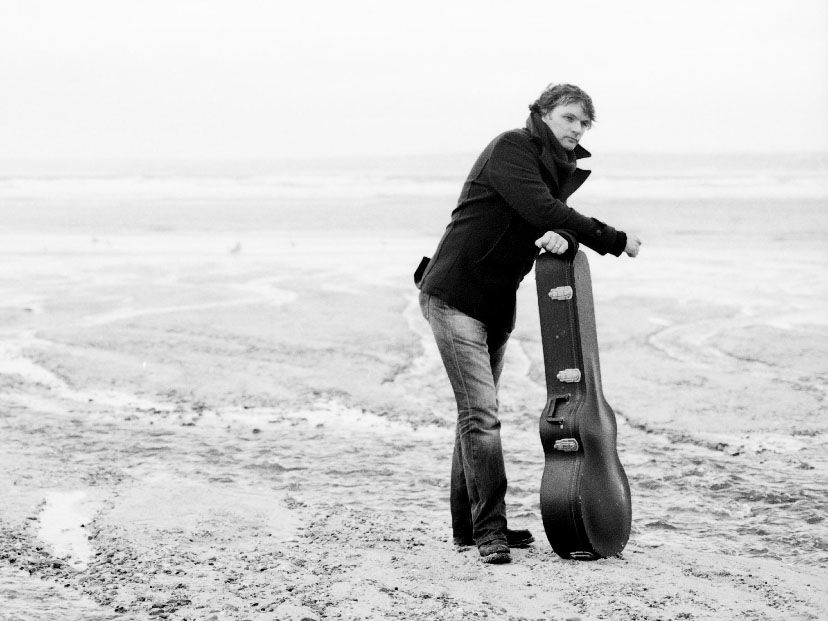
Scott Fleming is not only a singing teacher, but a talented actor and composer. Having attended Mountview conservatoire, and stared in many shows, Scott is a huge advocate of the performing arts. He worked at Truro College in Cornwall for many years, providing one-to-one singing lessons for those studying the musical theatre diploma, and some of these students absorb his knowledge of the industry to then try for drama schools, or simply excel in confidence and performance. He is coaching the next generation of theatre stars.
However, the pandemic caused Scott to lose his job at the college, which cancelled all one-to-one instrumental lessons. As a firm supporter of the industry, Scott expresses his annoyance at how performing arts is under appreciated, despite things like movies, music and television being the main sources of entertainment within the lockdowns. “I just think it’s a real shame that across the board, performing arts tends to be the first thing to go”, he says. There have been fifty percent cuts within performing arts at universities across the UK, and there is the possibility of scrapping the BTECS. This will result in fewer pathways for young people to become involved academically in the arts.
Scott has 15-years-experience under his belt from teaching at the college, and has obtained distinctions across the board of his students. He knew he couldn’t just give it all up. Therefore, like many others across the UK who were unable to work face to face with clients, he set up his own Voice Academy to continue to inspire and coach budding singers.

Scott tells me over Zoom how these lessons have played a key part in keeping students engaged and to improve their mental health when the uncertainty and fear of the pandemic struck. He is sat in his new home studio, complete with a piano and music stands dotted around, the perfect set-up for virtual coaching. “Having an individual singing lesson when they went online last March was absolutely vital to some students”, Scott says, “As much as it was to prepare them for performing, it was also just giving them that sense of self”.
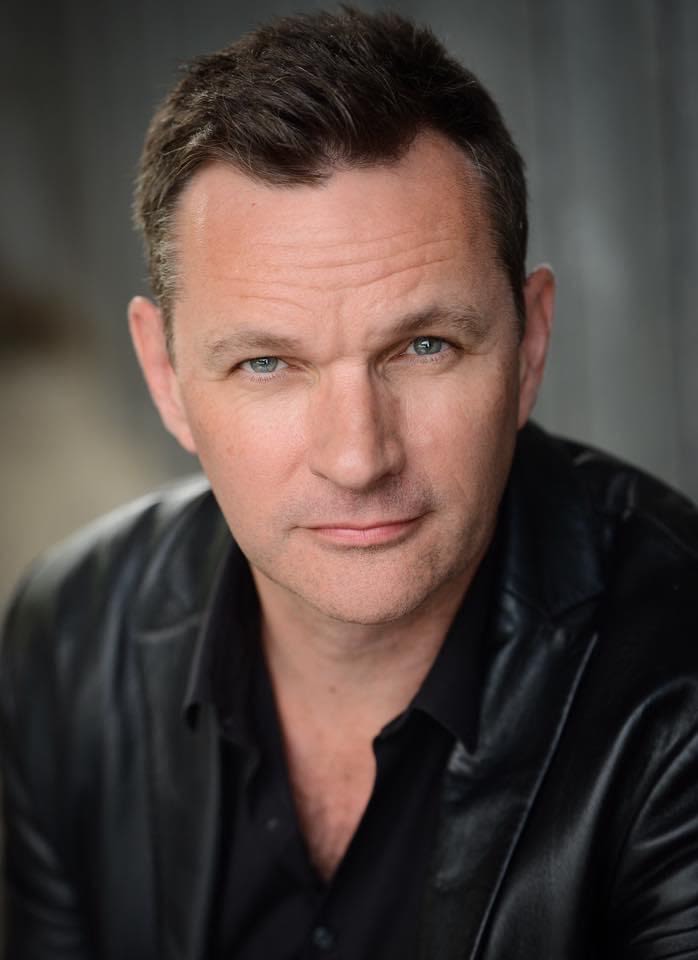
However, it was a tricky transition for Scott having to go online. “It’s been really liberating, it’s been very scary and there was a grieving period, it was a very tough transition”, he says. His neighbour assisted him with his website, and then he was all set to resume teaching. But he has discovered that there have been benefits to going online, Scott now has the time to keep his own creative flair going. He is discovering new musicals and songs, which he says is absolutely fundamental as a teacher, as he can grow and learn too.
Over the last twelve months, the drive to keep Scott going, apart from the money, was seeing how much some students were struggling. “This really worried me”, Scott says, “So I said look, come and have a sing, don’t worry about achieving”. He has sometimes questioned whether he wants to carry on teaching, but seeing the release and serotonin singing gives his students, he knew it was out of the question to stop. He is now occupied with writing musicals and books, and is remaining positive and open to new opportunities now the restrictions are lifting.
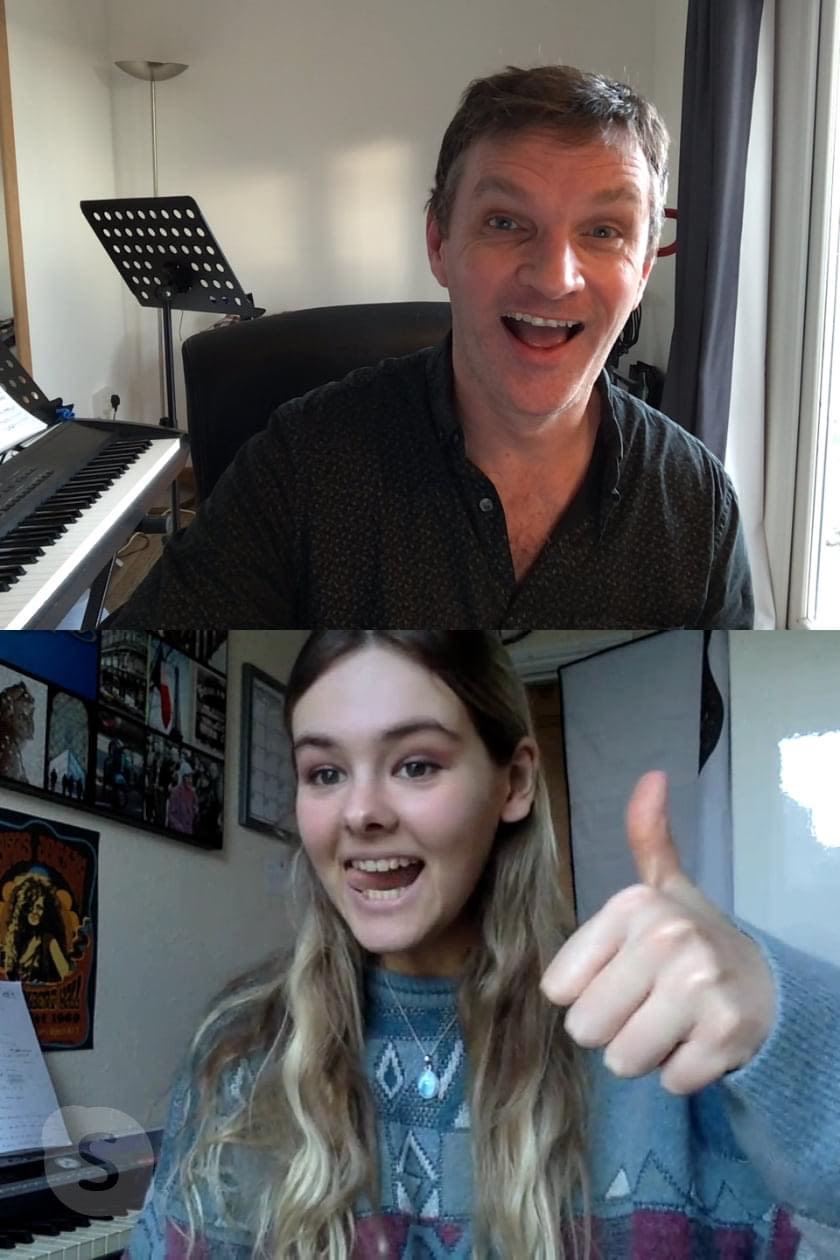
In regards of the future of his students, Scott realises that they face a challenge due to the effects of the pandemic, but knows that the ones who want to do it, will do it. “This will separate the wheat from the chaff”, he says. He scoffs at the government’s Rethink scheme, the advert that made many performers question their dreams that shows an image of a Fatima the ballet dancer rethinking a career in cyber. “Performing isn’t something you do its who you are, the ones that want to will, however you have to be so driven”, he says strongly. And suddenly I feel like a student, being reassured by a teacher who will guide you to your goals.
All Image Credits: Scott Fleming
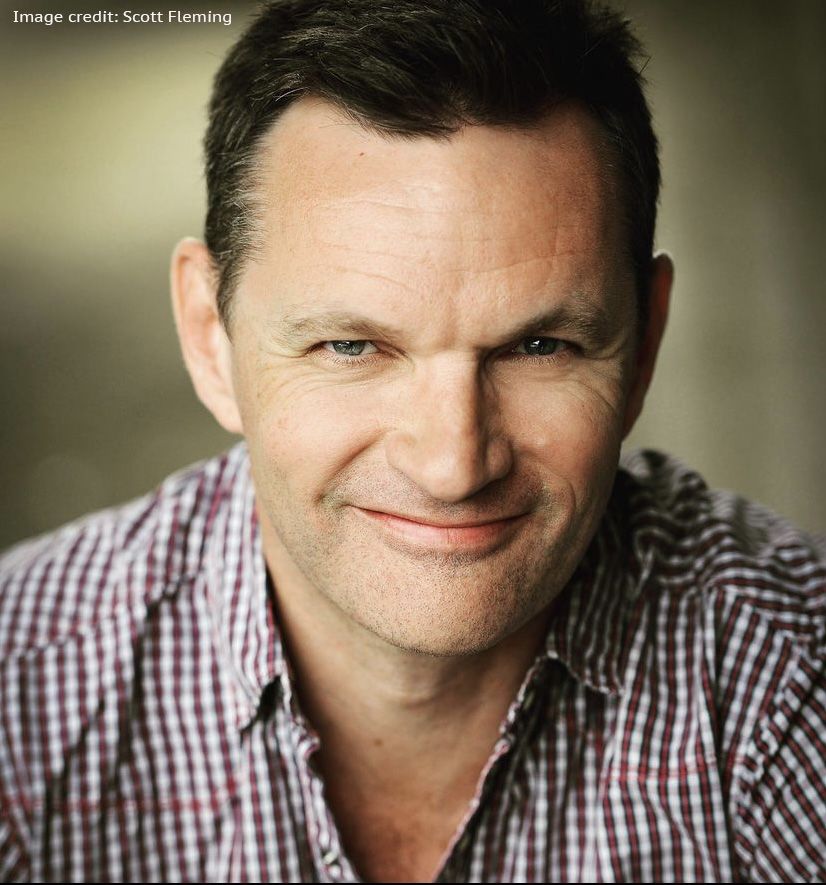
And now the Minack is thriving again, with guided tours and performances in full swing. Only the occasional windy day puts a halt to the theatre's schedule now.
Jacob's doorstep adventure has come to an end, but the warm June days are now spent rehearsing for a play with friends and plenty of pints at his local.
Maddie has completed her three years at Chicester, and is now tapping her feet and belting her best vibrato in front of an expectant row of agents.
And Scott is writing books and using his famous voice for voiceovers, but still using the time to coach the next generation of stars.
Image Credits: Mike Newman, Dumbfound Theatre, Maddie Wood and Scott Fleming Music.
